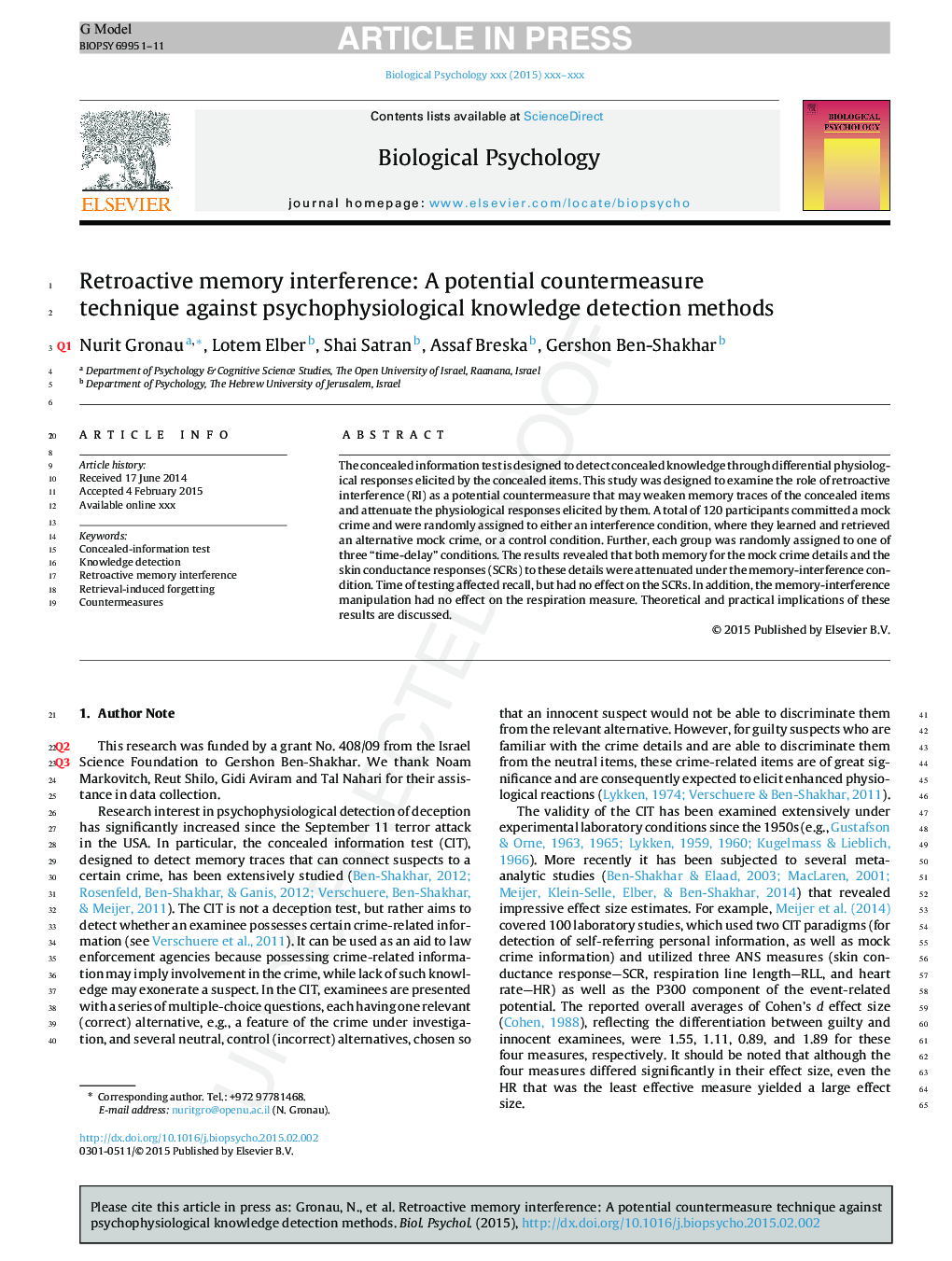| Article ID | Journal | Published Year | Pages | File Type |
|---|---|---|---|---|
| 7278641 | Biological Psychology | 2015 | 11 Pages |
Abstract
The concealed information test is designed to detect concealed knowledge through differential physiological responses elicited by the concealed items. This study was designed to examine the role of retroactive interference (RI) as a potential countermeasure that may weaken memory traces of the concealed items and attenuate the physiological responses elicited by them. A total of 120 participants committed a mock crime and were randomly assigned to either an interference condition, where they learned and retrieved an alternative mock crime, or a control condition. Further, each group was randomly assigned to one of three “time-delay” conditions. The results revealed that both memory for the mock crime details and the skin conductance responses (SCRs) to these details were attenuated under the memory-interference condition. Time of testing affected recall, but had no effect on the SCRs. In addition, the memory-interference manipulation had no effect on the respiration measure. Theoretical and practical implications of these results are discussed.
Related Topics
Life Sciences
Neuroscience
Behavioral Neuroscience
Authors
Nurit Gronau, Lotem Elber, Shai Satran, Assaf Breska, Gershon Ben-Shakhar,
